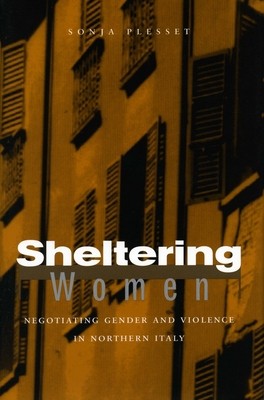
- We will send in 10–14 business days.
- Author: Sonja Plesset
- Publisher: Stanford University Press
- ISBN-10: 0804753016
- ISBN-13: 9780804753012
- Format: 16.3 x 23.6 x 2 cm, hardcover
- Language: English
- SAVE -10% with code: EXTRA
Reviews
Description
Residents of Parma, Italy pride themselves on their sophistication and connection to European modernity. But despite a reputation for civility, intimate partner violence continues to take place, largely hidden from public view. Offering a detailed ethnography of two women's shelters--one leftist, the other Catholic--this book provides the political, cultural, and legal contexts of competing explanations for intimate partner violence.
Some contend that violence against women reflects the cultural and historical gender inequalities embedded in Italian society, including old-fashioned or traditional understandings of masculinity. Others argue that it stems from confusion and ambivalence over new or modern forms of gender relations. While the first explanation places the blame on tradition and the second cites the transition to modernity, both emphasize societal understandings of gender and point to collective, rather than individual, responsibility. Through an intimate portrayal of everyday life, Sheltering Women reveals how violence against women can be studied as one part of a continuum of locally relevant understandings of gender relations and gender change.
EXTRA 10 % discount with code: EXTRA
The promotion ends in 17d.07:52:08
The discount code is valid when purchasing from 10 €. Discounts do not stack.
- Author: Sonja Plesset
- Publisher: Stanford University Press
- ISBN-10: 0804753016
- ISBN-13: 9780804753012
- Format: 16.3 x 23.6 x 2 cm, hardcover
- Language: English English
Residents of Parma, Italy pride themselves on their sophistication and connection to European modernity. But despite a reputation for civility, intimate partner violence continues to take place, largely hidden from public view. Offering a detailed ethnography of two women's shelters--one leftist, the other Catholic--this book provides the political, cultural, and legal contexts of competing explanations for intimate partner violence.
Some contend that violence against women reflects the cultural and historical gender inequalities embedded in Italian society, including old-fashioned or traditional understandings of masculinity. Others argue that it stems from confusion and ambivalence over new or modern forms of gender relations. While the first explanation places the blame on tradition and the second cites the transition to modernity, both emphasize societal understandings of gender and point to collective, rather than individual, responsibility. Through an intimate portrayal of everyday life, Sheltering Women reveals how violence against women can be studied as one part of a continuum of locally relevant understandings of gender relations and gender change.


Reviews